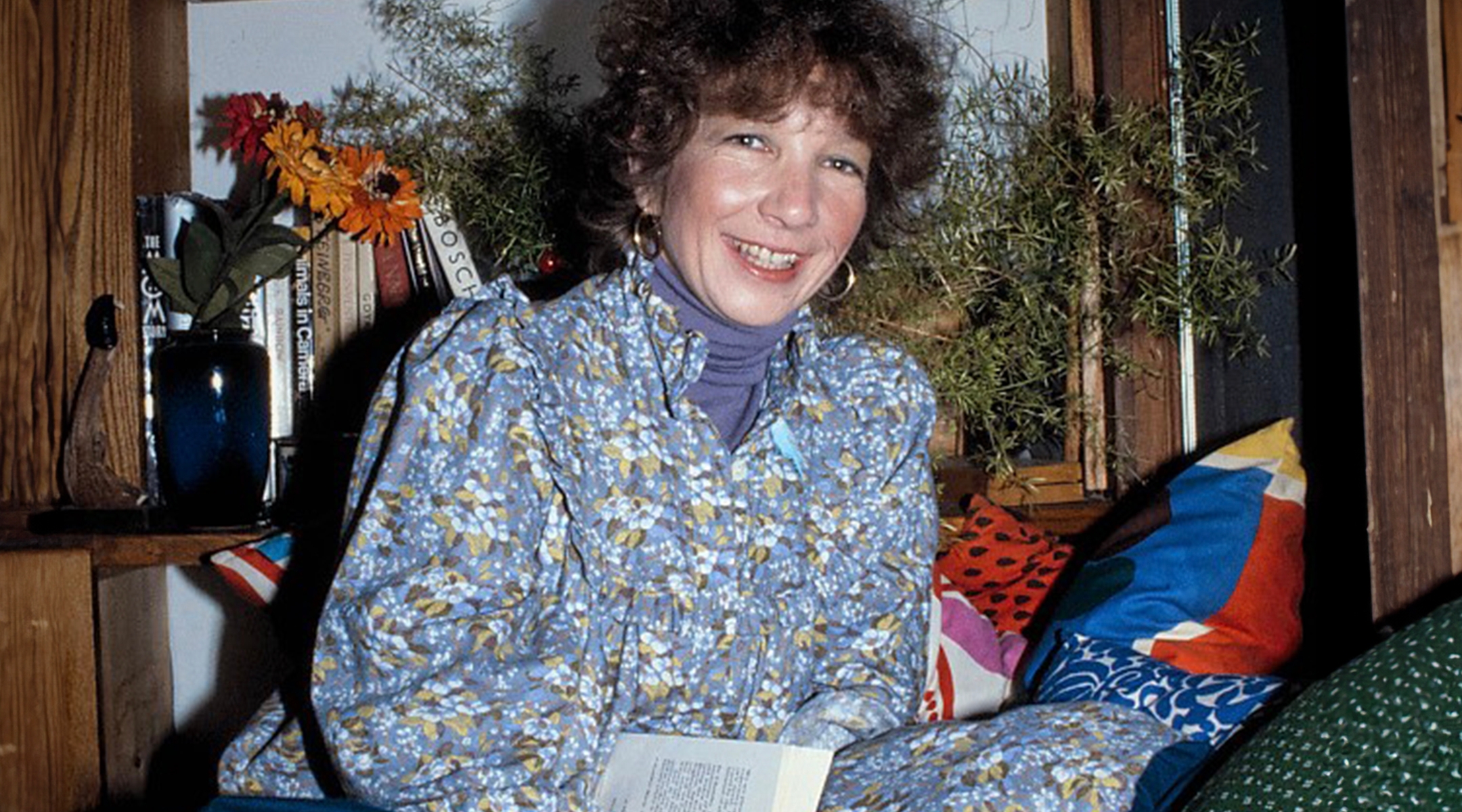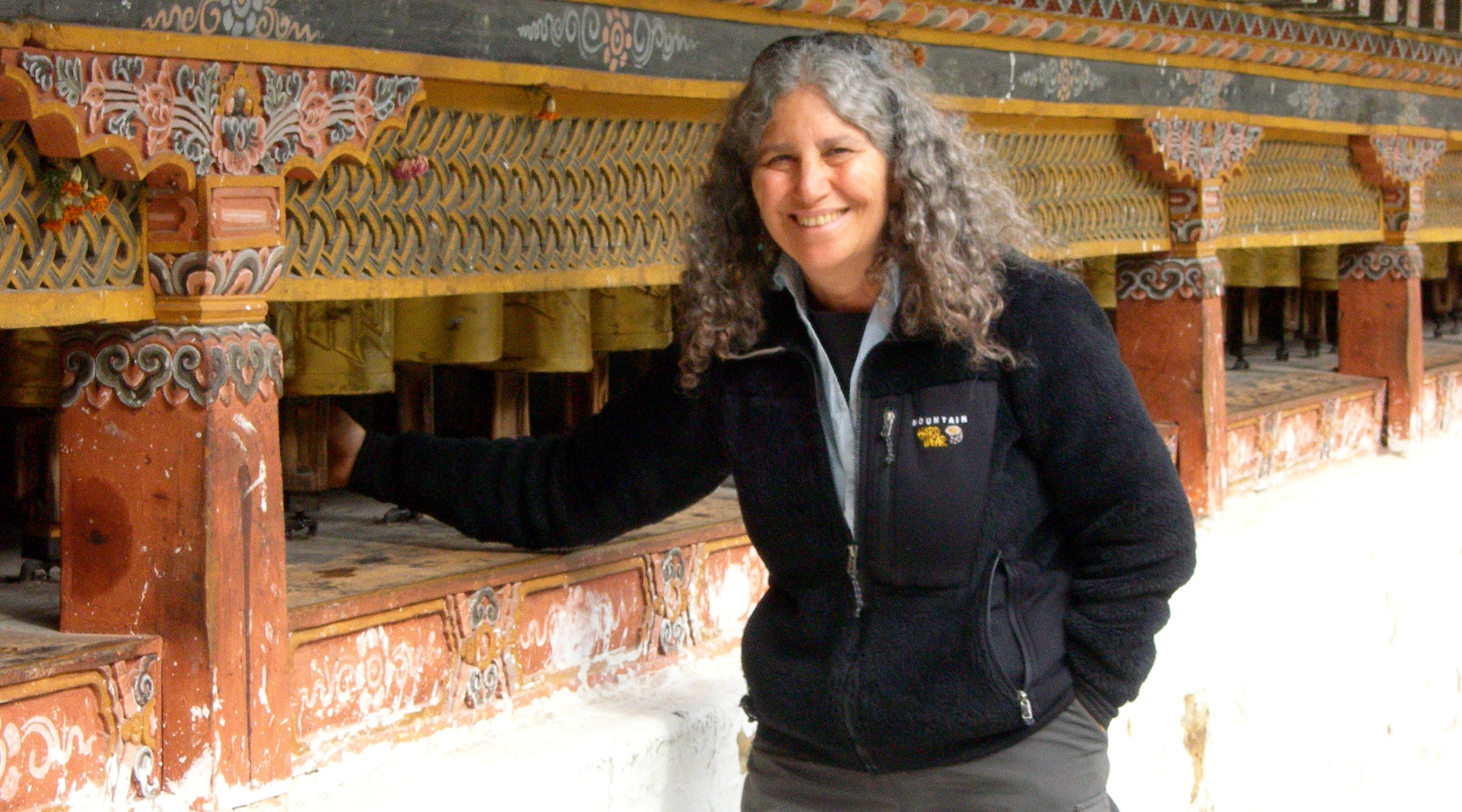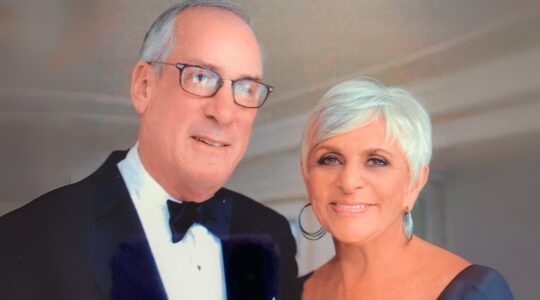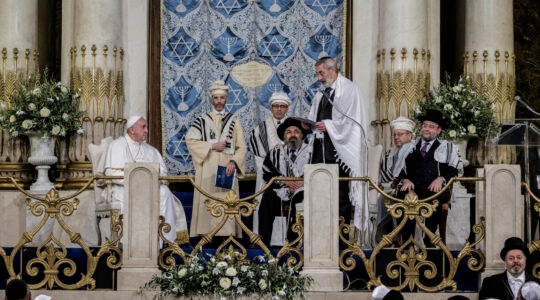This article is also available as a weekly newsletter, “Life Stories,” where we remember those who made an outsize impact in the Jewish world — or just left their community a better or more interesting place. Subscribe here to get “Life Stories” in your inbox every Tuesday.
Ilana Schatz, 71, Bay Area founder of Free Trade Judaica
When Ilana Schatz considered the fate of child laborers and other exploited workers, the taste of chocolate gelt would turn bitter in her mouth.
Having co-organized the first egalitarian prayer services at Berkeley Hillel in 1974 and having helped found Kehilla Community Synagogue in Piedmont, California, the Los Angeles native felt that Jewish values could not be divorced from economic justice. In 2008 she founded and directed Fair Trade Judaica, and over the next 10 years promoted products that respected the environment and workers’ rights — including fair trade chocolate coins for Hanukkah.
Schatz spent nearly all of her career empowering the powerless: She founded and directed the Volunteer Action Center at the East Bay Jewish Federation in Berkeley, California, and directed the Poverty Action Alliance, a project of the American Jewish Congress. She was also a board member at Community Vision, a financial institution promoting racial and economic justice in California.
Schatz, 71, died July 12 at her home in El Cerrito from ALS.
“Beyond her accomplishments and interests, Ilana is remembered for her authenticity and
integrity,” wrote her husband, David Lingren. “She was fully present and profoundly wise, helping others to tune in to and follow through on what was most important and real”
Rabbi Shmuel Butman, 81, Chabad leader and keeper of the flame

The World’s Largest Hanukkah Menorah, designed by Israeli artist Yaacov Agam, being lighted by then-New York City Mayor Michael R. Bloomberg, right, with Rabbi Shmuel M. Butman, director of the Lubavitch Youth Organization, in 2013. (PR Newswire)
Every Hanukkah starting in 1977, Rabbi Shmuel Butman would ascend in a cherry picker outside the iconic Plaza Hotel in Manhattan and light what he called the “World’s Largest Menorah.” In 2016 a Chabad-Lubavitch rabbinical court made it official, forbidding another Chabad rabbi in Brooklyn from calling his own candelabrum the world’s largest.
Although lighting the Manhattan menorah in the presence of New York City’s mayors was perhaps his highest-profile role, Butman also served for decades as the director of the Lubavitch Youth Organization, part of the Hasidic movement’s outreach efforts to draw secular and disaffected young Jews closer to their heritage.
A close associate of the movement’s rebbe, Menachem Mendel Schneerson, Butman was part of a faction that considered the rebbe the messiah after his death in 1994. Despite the internal disputes, Butman continued to welcome politicians to the top of that 36-foot tall menorah, proclaiming, “May the lights of the Chanukah menorah that everyone is putting up throughout the world usher in the eternal lights of Moshiach [messiah] and the great redemption for all.”
Butman died July 22. He was 81.
Jill Schary Robinson, 88, memoirist who grew up among Hollywood royalty

Jill Schary Robinson, shown in 1979, drew on her life in several critically acclaimed books, including “With a Cast of Thousands.” (Bernard Gotfryd/Library of Congress/Wikipedia)
Jill Schary Robinson was 27 when she wrote an acclaimed Hollywood memoir about growing up the eldest daughter of the Jewish playwright, screenwriter and studio mogul Dore Schary. Robinson had a privileged perch during Hollywood’s golden age, when the movie industry was powered by ambitious Jews like her father, whose parents ran a catering business in Newark, New Jersey.
“Hollywood, the American dream, is a Jewish idea,” Robinson told Studs Terkel in 2008. “In a sense, it’s a Jewish revenge on America. It combines the Puritan ethic — there’s no sex, no ultimate satisfaction — with baroque magnificence. The happy ending was the invention of Russian Jews, designed to drive Americans crazy.”
In addition to “With a Cast of Thousands” (1963), she wrote several other books that drew on her upbringing, her struggle with substance abuse and an epilepsy-induced bout with amnesia, including “Perdido” and “Bed/Time/Story.” Her son, Jeremy Zimmer, is the founder and CEO of the United Talent Agency.
Robinson died July 19 at her home in Beverly Hills. She was 88.
JTA has documented Jewish history in real-time for over a century. Keep our journalism strong by joining us in supporting independent, award-winning reporting.






